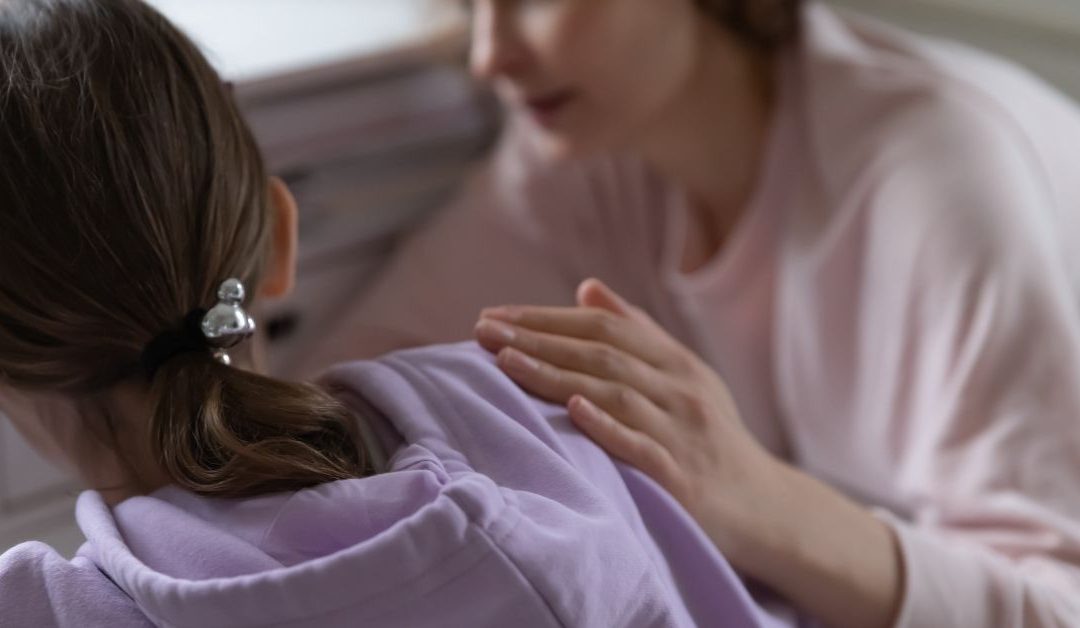Several months ago, we wrote about three simple ways to help a grieving parent; so, this month we’re covering the other side of the coin: ways to help children cope with the loss of a loved one.
The ways in which children grieve can vary based on age and how close they were to the person who has died, so it’s important to find what works for your child. We’ve shared three simple things parents can do to help a child who has lost a loved one, below.
Be Direct, Provide Comfort, and Encourage Emotions
When speaking to your child about the death of a loved one, be sure to use simple and clear words. Avoid vague terms like “passed away” and euphemisms like “went to sleep,” and instead, for example, say, “Grandma died today.” Then, pause and allow for your child to understand and take in your words. With this news, some children may cry, some may ask questions, or some may not react at all. Every child will react differently, so be sure to provide plenty of comfort and reassurance during this time. It’s also important to note that not all children have a firm grasp on their emotions, so encourage them to say what they’re thinking or feeling in the weeks and months following the death.
Talk about Funerals and Rituals
Whether you allow your child to join you at rituals such as the funeral, memorial service, wake, or viewing is entirely up to you and your child, but if you do decide to attend, we recommend talking with them about what to expect before going. You might want to explain how a traditional burial or cremation works, depending on which option was chosen, to avoid any shock or confusion during the service. You may also want to prepare your child for how to handle the sympathies and emotions of other attendees. Above all, use your own judgment on what to share with your child.
Commemorate Your Loved One
Find ways to remember and commemorate your loved one with your child. Try sharing memories, drawing, or telling stories together to help facilitate healthy grieving. Remember to not avoid mentioning the person who died, and to encourage your child to do the same, as this will not only help your healing process but will help keep their memory alive. Check out this article by Full Circle for some ideas on how to help your child honor and remember their loved one.
Not all children cope with the loss of a loved one in the same ways. If these three recommendations didn’t resonate with you or your child, reach out to our team. We would be happy to provide you and your family with the support and care you deserve in your time of need.

